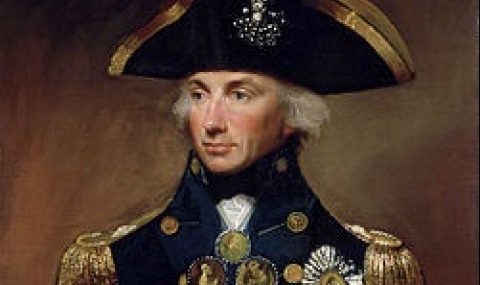On October 21, 1805, the Battle of Trafalgar takes place. The British fleet, led by Admiral Horace Nelson, defeats the combined forces of the French and Spanish fleets off the coast of Spain. Thus, the British navy became an undisputed force until the twentieth century.
The price was paid with the life of Admiral Nelson.
Standing on the bridge of the flagship “Victoria”, the vice-admiral gave his men his famous signal – “England expects every man to do his duty”. Employing his now famous battering ram tactics, Nelson comes close to winning this battle. Shortly after one o'clock Hardy, the captain of the “Victoria”, looked for him with his eyes, but found him on his knees on the deck. “Hardy, I guess they finally did…..my spine is shot” – Nelson says, falling to the side.
Instead of burying him at sea like a true admiral, however, his men comply with his will and after about three months return his body to London to be buried by his beloved Emma.
To preserve the body during this time, they put it in a large barrel, and then fill it with brandy, camphor and myrrh.
Horace Nelson was born in 1758 in Norfolk County. His father is a pastor and his mother is from the noble Walpole family, in which Sir Robert Walpole, the first British Prime Minister and her grandfather, shines, as well as other famous figures. However, the mother died early when Horacio was 9.
He feels lonely and starts begging his uncle, who is a naval officer, to take him on the ship. In the meantime, he learns something, but when he turns 12, his uncle becomes the commander of the ship Raisonnable and bows to his requests. Nelson is appointed midshipman and begins to prepare for the glorious and brilliant career for which he is not really suited at all. Horace Nelson suffers from seasickness.
However, the French Revolution declared war on the British and Nelson was called up again, now in command of the ship “Agamemnon”, a modern rig with 64 guns on board. In the years that followed, Horatio Nelson was always immediately at the forefront of British naval successes in the Mediterranean and Atlantic.
